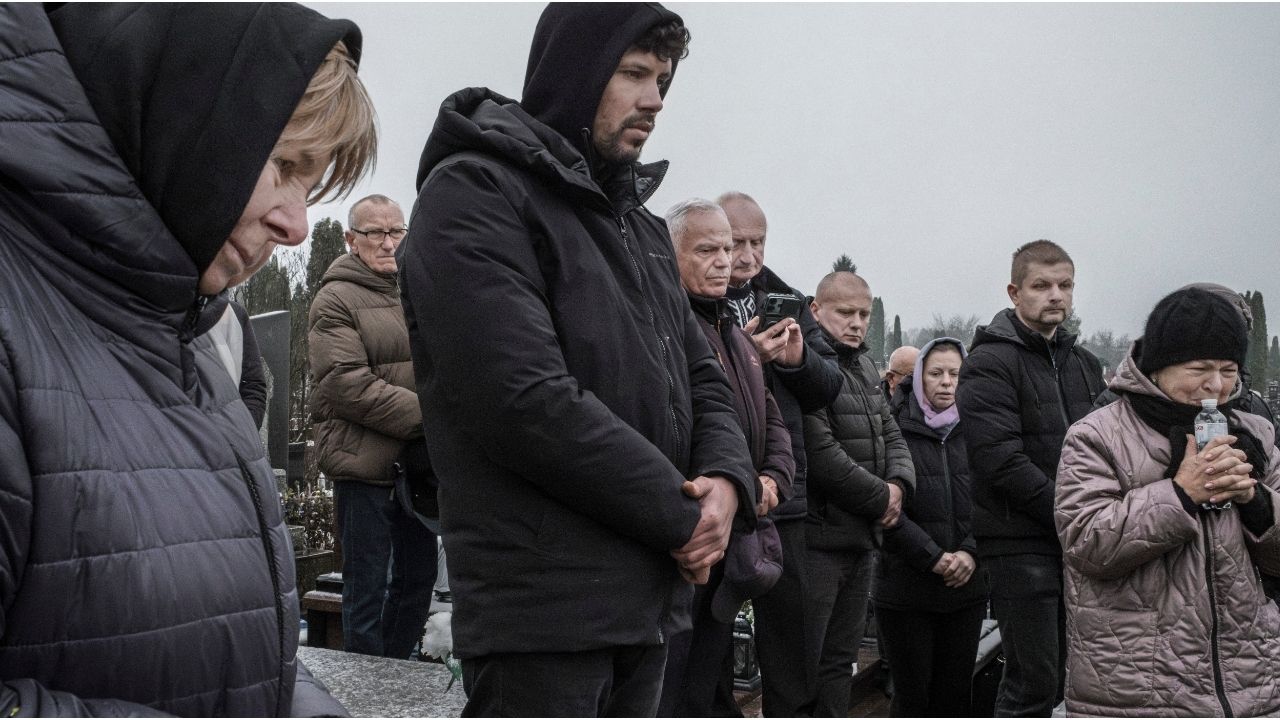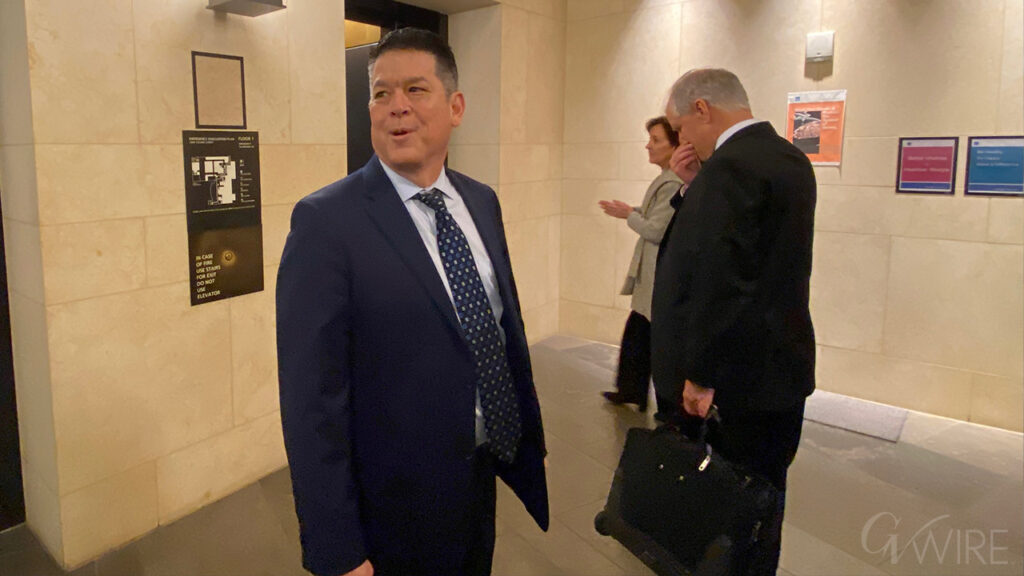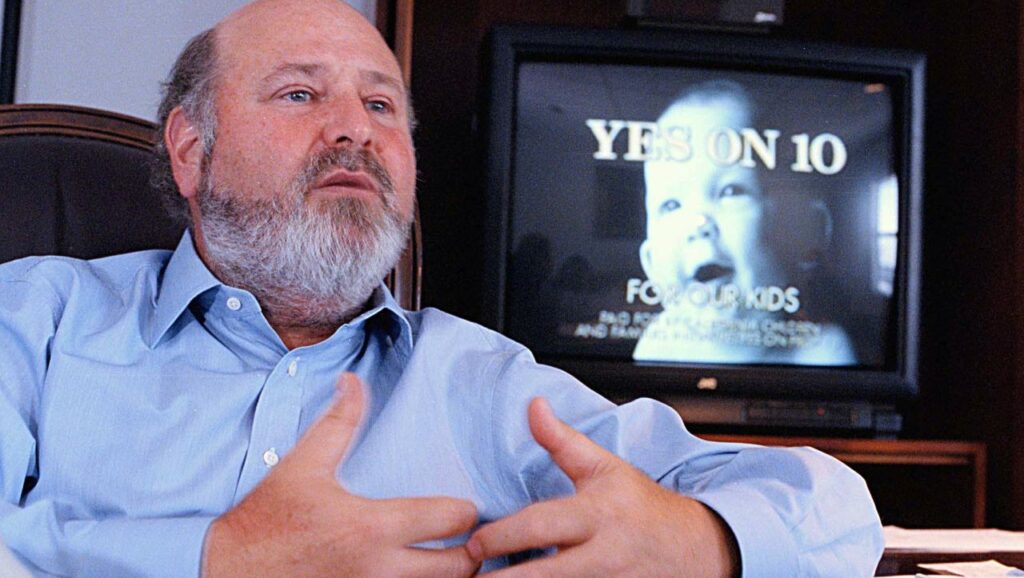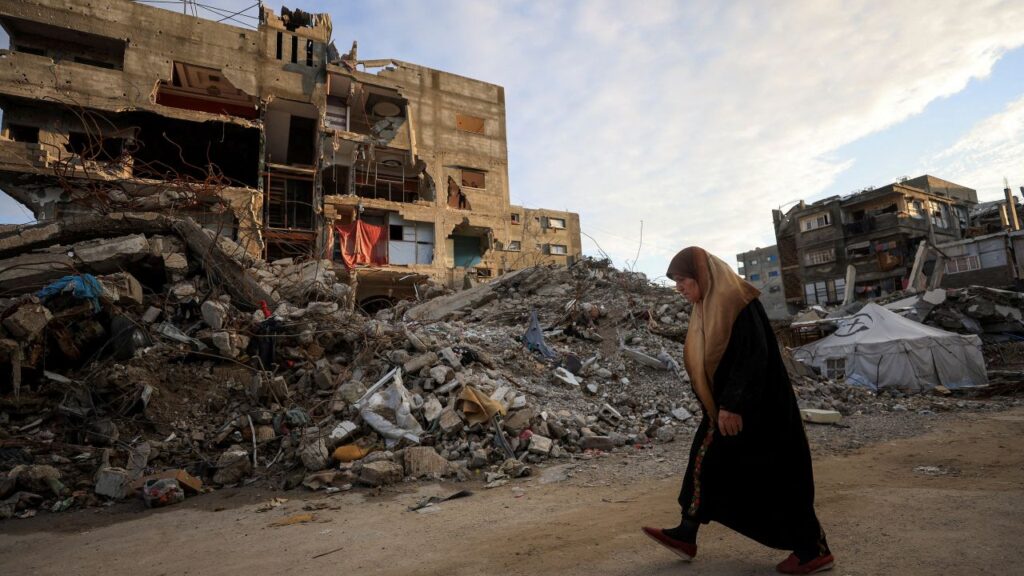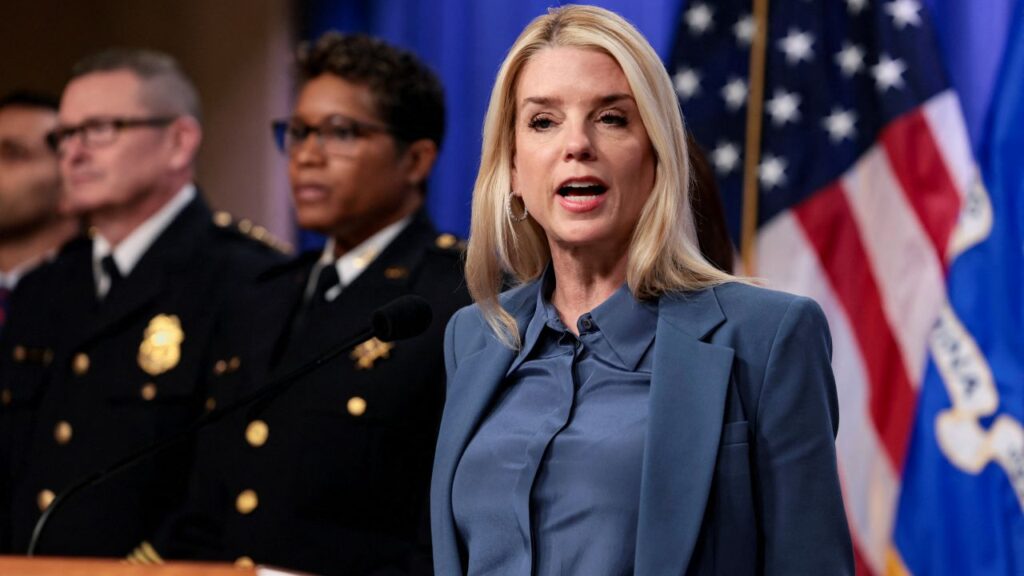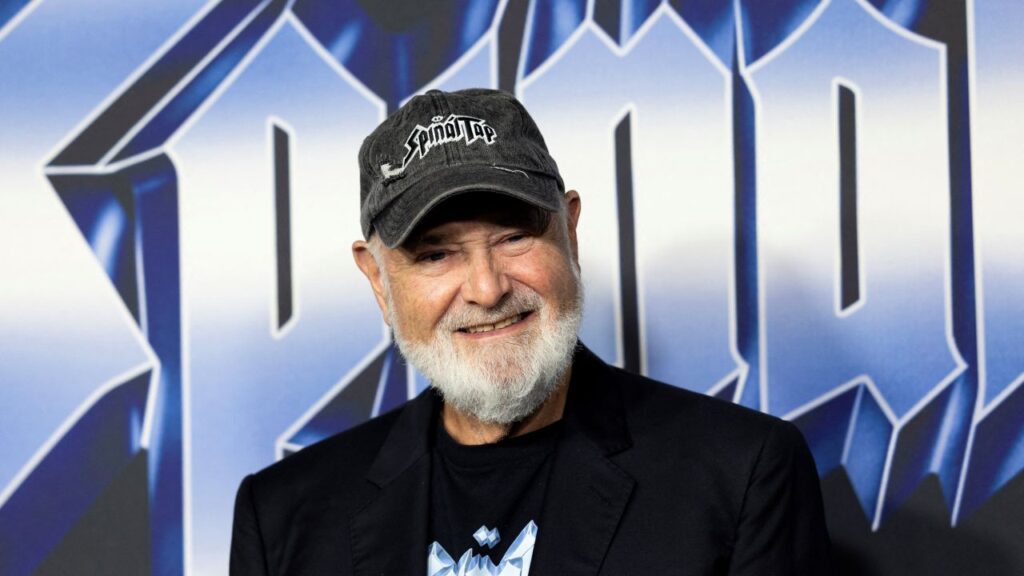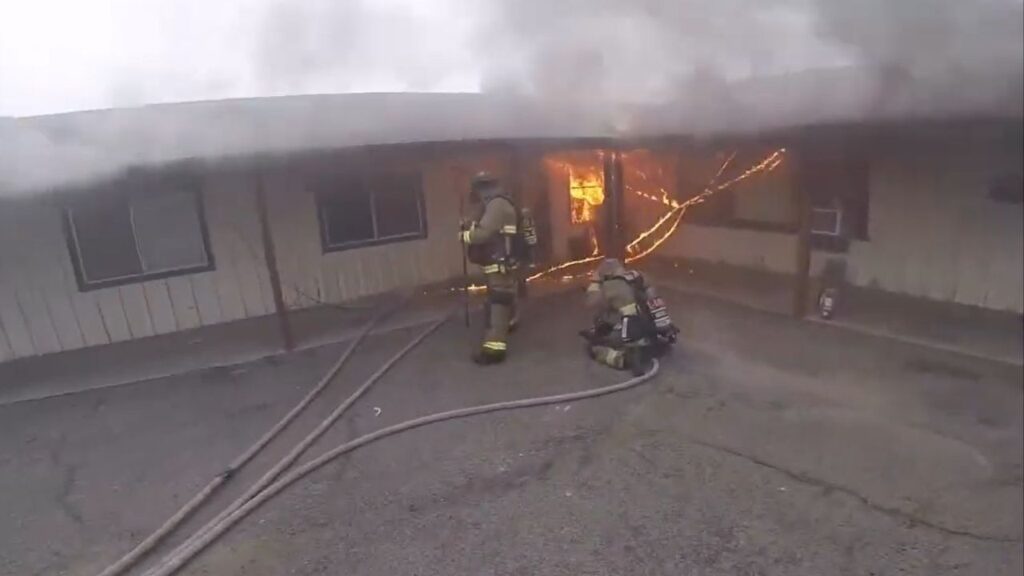A funeral for victims of a Russian missile attack that killed at least 39 people in Ternopil, Ukraine, Nov. 23, 2025. Russia launched a large-scale attack on Ukraine on Tuesday, as American and Russian officials held talks in Abu Dhabi about President Trump’s peace plan and Ukraine indicated that President Volodymyr Zelenskyy was prepared to go to Washington to finalize a deal. (Mauricio Lima/The New York Times)
Share
|
Getting your Trinity Audio player ready...
|
KYIV, Ukraine — Russia launched a large-scale attack on Ukraine on Tuesday, as American and Russian officials held talks in Abu Dhabi about President Donald Trump’s peace plan and Ukraine indicated that President Volodymyr Zelenskyy was prepared to go to Washington to finalize a deal.
Missile and drone strikes on Kyiv, Ukraine’s capital, killed at least seven people and injured at least 20 others, according to the city’s mayor. The attack came as Ukraine and some of its non-U.S. allies, a so-called “coalition of the willing,” were scheduled to meet by video conference to discuss the peace efforts and security guarantees for Ukraine. Mark Rutte, the secretary-general of NATO, will also join the discussion.
“Last night, Russia launched another attack — at a time when Ukraine, together with America, Europe, and many others around the world, are working virtually around the clock to stop the bloodshed,” Zelenskyy said on social media.
Ukraine also carried out strikes on Russia overnight, hitting the southern Krasnodar region in what Veniamin Kondratyev, the local governor, said was one of the longest and biggest attacks. Three people were killed in separate strikes on the neighboring Rostov region, the local governor said on social media.
Lull of Attacks Since Wednesday
Since Wednesday, when a Russian missile strike killed at least 39 people in the western city of Ternopil, there had been a relative lull in attacks on Ukraine beyond the front lines. Many Ukrainians were bracing for another large-scale assault despite the recent flurry of diplomatic activity.
“It doesn’t look like they are agreeing on anything,” Dariy Svitlyi, 22, a driver, said as he drank coffee outside a cafe in Kyiv. “I feel very sorry for all the guys who died on the battlefield, and just as sorry for all those who are now fighting and risking their lives.”
Anatoliy Dnistrovyi, a Ukrainian writer, said he saw a familiar pattern repeating itself: pressure from the United States to accept a peace proposal followed by a Russian missile attack. “With the Russians, everything has long since happened to us already and keeps repeating over and over,” he said.
Mediators from Ukraine and the United States emerged from the Geneva talks with a slimmed-down framework for ending the war that left a number of the most controversial issues unresolved.
Rustem Umerov, Zelenskyy’s national security adviser, struck a positive tone on Tuesday, saying on social media that the American and Ukrainian delegations had “reached a common understanding on the core terms of the agreement discussed in Geneva.” He added that Zelenskyy was prepared to travel to the United States this month to finalize a deal with Trump.
Trump Wants Deal Quickly
Karoline Leavitt, the White House press secretary, told reporters on Monday that Trump wanted a deal as quickly as possible but that there was no meeting scheduled between the two leaders this week.
Oleksandr Bevz, a member of the Ukrainian negotiating team in Geneva, said that the atmosphere in the negotiating room was “unexpectedly constructive for both sides” and that American officials had been “very receptive to our arguments.”
“Compared with what was previously released publicly, the document has become better,” he said, although he added that it was not a final deal.
Russia has yet to respond to the peace proposal, which has changed significantly from an earlier draft that was widely seen as much more favorable to Moscow. Daniel P. Driscoll, the U.S. Army secretary, was scheduled to meet on Tuesday with a Russian delegation in the United Arab Emirates.
Sergey V. Lavrov, Russia’s foreign minister, said that Russia was waiting for the United States to submit an “interim” version of a peace plan that had been agreed upon by Ukraine and its European allies.
“Then we will see,” Lavrov said after a meeting in Moscow with his Belarusian counterpart.
If the plan “erased” what Lavrov called “the spirit and letter of Anchorage” — referring to an August meeting in Alaska where Trump sided with Russia’s approach to end the conflict — then “it will be a fundamentally different situation,” he said, suggesting that Russia would resist any rolling back of the maximalist positions that were in the plan.
Zelenskyy said the attack on Kyiv had caused extensive damage to residential buildings across the city. Officials posted photos and videos on social media that showed rescuers trying to extinguish flames pouring from a high-rise building. Power outages were reported in the capital after the explosions.
Russian strikes also hit the regions of Odesa, Dnipro, Kharkiv, Chernihiv and Cherkasy.
“The primary targets were the energy sector and everything that keeps normal life going,” Zelenskyy said. In recent weeks, Russia has attacked electricity and heating infrastructure as winter approaches.
On Tuesday, Zelenskyy urged Ukraine’s allies to help the country defend itself and reiterated his support for a coordinated diplomatic push to end the war after the Geneva talks.
Vitalii Portnikov, a Ukrainian political analyst, said the initial U.S. plan had emerged through a “misunderstanding” of Russian goals by the Trump administration. Russia prioritizes political and territorial goals over economic ones, he said, arguing that attempts to end the war with financial incentives and trade would not work.
“Trump reasons rationally,” Portnikov said. “But how logical is that when you are dealing with irrational partners in the Kremlin?”
Some Ukrainians rejected attempts by the Trump administration to pressure Ukraine into accepting a deal.
“Even for a bad peace, you shouldn’t issue an ultimatum to the victim — you need to put pressure on the aggressor,” said Yaroslav Yurchyshyn, a member of parliament from Zelenskyy’s party.
—
This article originally appeared in The New York Times.
By Maria Varenikova/Mauricio Lima
c. 2025 The New York Times Company


